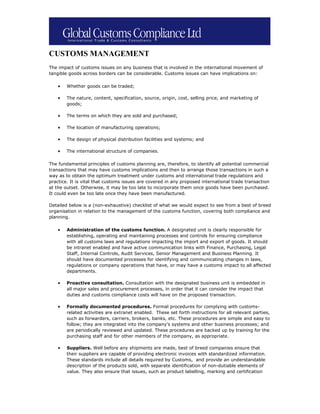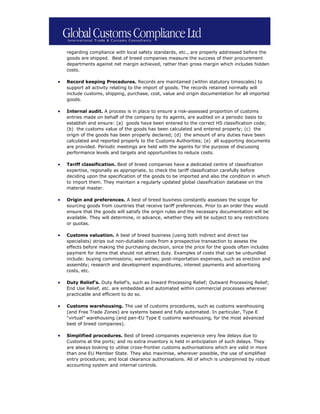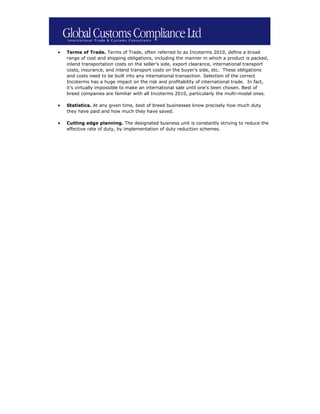The document discusses customs management best practices for businesses involved in international trade. It outlines key areas companies should address including designating a customs management unit, consulting this unit early in sales and procurement, documenting customs procedures, ensuring supplier compliance, record keeping, auditing customs entries, classifying goods, determining origin and preferences, stripping non-dutiable costs for valuation, using duty reliefs, customs warehousing, simplified procedures, understanding terms of trade, tracking customs statistics, and planning to reduce duties.


